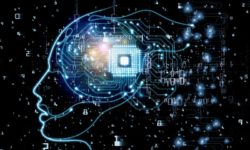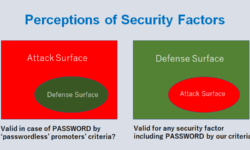Photo: Zac Durant
Throughout history, philosophers have suggested a great diversity of views on the fundamental nature of knowledge, reality, and existence. Human species, however, survive and advance while solving issues on less abstract and more pragmatic information-processing tools that enable adequate responses and efficient adaptation.
Basically, it is an activity of our brain which receives fresh information from the sensors and recurrently updates its model of the relevant environment. Thousands years of cultural evolution and personal experience have taught each of us that “out there” exist many entities: other humans as well as great variety of living organisms and nonliving matter, and that the interactions with them, as a rule, are consequential. We can’t grasp all the information about our environment, and there is no need for that, because all entities that could be recognized as potential danger, challenge or opportunity, constitute the subset “relevant environment”: a cold water-melon in a hot summer day, a loose Rottweiler you encounter while jogging, the current quotes of stock, or the tennis club where your boss goes frequently and you could eventually contact informally in order to accelerate your promotion. Those are the things that matter to you regardless of how far away physically they are.
Among the many renowned scientists who approached in different aspects the idea of the world as a multidimensional space where entities (or systems) interact, was the Austrian biologist Karl Ludwig von Bertalanffy who published “General Systems theory: Foundations, Development, Applications” in 1968.
For the current contribution, an entity is a conglomerate of human, biological, inorganic or machine systems that in principle function on interlocked subsystems, each of which provides in real time its highly differentiated input into a dynamic integral decision-making process which ultimately determines the behavior of the entity.
Agency is the capacity of an autonomous system to generate sovereign decisions on how to act in a given condition of its relevant environment. An agency functions through materializing three functionally integrated activities: Intelligence, Assessment, and Actuation. Any type of Intelligence (biological or artificial) is the capability to devise a viable solution to a given problem through information processing. The Assessment (or judgment, evaluation, motivation) component of an Agency represents a Hierarchy of Values that determine the agency’s purposes and goals as well as agendas for action to protect and advance its interests. In a way, the Assessment component represents the Agency’s cause of existence. It is what Norbert Wiener — the father of Cybernetics, defined as “the purpose put into the machine.” If an Artificial Intelligence Agency would ever have a Heart, it would be its Hierarchy of Values. Finally, Actuation is the process of materializing Agency’s decisions through engaging the connected subsystems for physical output — such as muscles, hormonal glands, or external tools and weapons, that are capable of effecting changes in the Agency’s inner systems as well as on the Agency’s operational environment.
With the above instrumental of system analysis, we can view our world as a mega-system of entities and agencies that incessantly interact with each other while following the dynamically changing agendas as generated by their assessment units. In the broad meaning here “interaction” stands for any of the processes resulting in collision, integration, dissolution, fusion, transformation, annihilation, etc.
The Status of Human Condition
The reality that me and you are representatives of the Human species predetermines the exceptionality of any study related to the Human condition. From axiological point of view there is nothing unnatural in us being anthropocentric and to consider Humans (in the meaning of Homo sapiens – the only currently extant human species) the only creatures entitled to embody supreme existential values within the Universe. Humans are the measure of all things, and that imperatively determines the frame of reference and the set of criteria assessing the relevance and the significance of any process evolving in both material and transcendental world. No matter how deeply we can get attached to our pets, to the cute Robots and the Artificial Intelligence powered newcomers in the neighborhood, to the unsurpassable beauty of Nature, or to any kind of creatures that might visit Earth from some other galaxy, our advanced Ethics (in-making) should provide sufficient ground for us, the Humans, to claim that the Universe is our domination.
The Human Multi-Agent Entities
Homo sapiens is a completed biological species, but she can survive only in a group, and not as an independent individual. That makes Human Civilization the spiritual dimension of Homo sapiens group strategy for survival where Humans mutually defend their immediate and strategic interests through generating Civilizational Values. Civilizational values include the state of security as a high priority.
Life in a group exposes the decision-making process of a Human Agency to the pressure of powerful and usually controversial motivational fields – the very distinct individual self-interest, and the relatively abstract interest of the group which, however, functions for the individual as the only vehicle for survival. The contemporary reality is much more complicated because the decision-making process of an individual Human Agency has to assess, besides its individual self-interest, not one but a multitude of potential behaviors deriving from her status in different groups, each of them functioning as a separate agency with activities consequential to your social status and thriving. You yourself might prefer to spend the Saturday morning playing golf (as usual), but your wife is not feeling well and asked you to take your daughter to her regular Saturday piano lesson; your secretary called to inform you that the CEO summons all directors, (you being one of them) for an emergency meeting at 10.00 this same Saturday. As a result, you find yourself at the conflicting point of three autonomous agencies’ agendas – yours, your family and the company.
The point here is that organized groups of people are in fact multi-agent systems transformed by synergy, coordinated individual behavior and common goals into new next-level agencies – be it family, corporation, political party, soccer team, nation-state, military unit, mafia organization, symphony orchestra or research team.
The reality is that those human multi-agent entities provide almost everything we need for our lives to run the way they do (with the exception of the air we breathe, maybe), and shape the world around us the way we see it. Sometimes they cooperate with each other – for Boeing to make airplanes, for example, it takes some 13 000 other businesses in its supply chain; sometimes human multi-agents entities clash with each other – like companies for bigger market share, or political parties fighting to win elections; and sometimes bloodshed in violent conflicts takes millions of victims. But each human multi-agent entity at any time has its agency in charge of decision making: every orchestra has a conductor, countries have governments, militaries have headquarters and companies have CEOs. As every agency functions through materializing three functionally integrated processes: intelligence, assessment, and actuation, the quality and the precision of those processes determine the behavior of the human multi-agent entity and influence the final outcome, which is consequential for the stakeholders.
The Missing Agency of Civilizational Thinking
Our biological body as the anatomical and physiological system of Homo sapiens was designed millions of years ago for their life in the caves, and that construction must have been more or less reliable for the then circumstances. The survival of our biological species for the millions of years since then is an undeniable proof for that. But can this biological body with its Paleolithic features be still fit for the style of life we are having in the 21st century where Homo sapiens has to operate in the radically changed high-tech environment of the Anthropocene?
The reality that we cannot discover the risks of nuclear war, singularity or global pandemic in the same way our ancestors spotted the tiger in the bushes, makes us blind creatures approaching the doorstep of a new world where self-organizing AI and genetically self-composed species will inhabit our living space, most probably fully disregarding our vital interests.
Now that we don’t have the adequate receptors to efficiently detect the new type of risks present in the Anthropocene world, which, by the way, we have created ourselves,
we need to design a new strategy
And it is not only about risks – in the yet unexplored zone “out there” must also be plenty of new opportunities which we may use to enhance the thriving of Humankind.
With thousands of years long tribal history, we have accumulated huge experience in designing partial human multi-agent entities: empires, kingdoms, international corporations, secret intelligence networks, worldwide present hidden societies, and a lot more.
Now when intensive globalization, communications, and the dynamic advance of exponential technologies are about to force us into a world of unknown challenges and opportunities, is the right time to design a new strategy for our future – a strategy elevating the human consciousness to its highest status of Civilizational thinking: all Humanity functioning as one multi-agent entity.
It is the cause, not technologies, that will decide the Future of Humanity.





 Electromagnetic Fields and Health Risks
Electromagnetic Fields and Health Risks